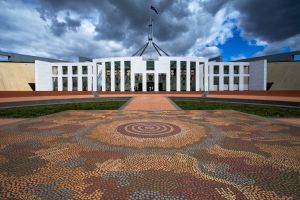Because of few legal restraints, social media companies have essentially run free for over a decade and a half. However, the Australian government is trying to limit some of this power held by these corporations. Over the past week, this has caused a massive rift between the two sides.

Now, this stand-off appears to have eased up. The Australian government and Facebook seem to have reached an agreement regarding the role of tech giants in news ownership and promotion. Australia originally proposed The News Media Bargaining Code in late February. This law would have required tech titans (in particular, Facebook and Google) to pay for news content. This would loosen the grip social media has on the news industry as the corporations would now have to pay news stations and reporters for previously free content. According to BBC, “The Australian government says the code is needed to ‘level the playing field’ for news publishers, which have seen profits slump in the internet age.”
However, social media corporations opposed the first drafts of this legislation. Facebook even went as far as to block its news pages in Australia as a retaliation to the code. The government has since edited the proposal, which Facebook now accepts. As a result, the media behemoth restored all blocked content. Dr. Nune Grigoryan, assistant communication professor, said that while the Australian government and Facebook currently have reached an agreement, it’s unknown if the code will be able to hold social media companies accountable.
Grigoryan also stresses that it is important to understand that this code was never meant to ban Facebook. Rather, it was to try and limit big tech in the news industry. She feels that it would be almost impossible for the Australian government to pass legislation to ban Facebook due to its immense power and size.

This piece of legislation is now being hailed as an important moment in the age of social media, as this is one of the first times a government has put in the effort to try and stand up to big tech. Brian Stelter from CNN Business was able to talk to one of the co-creators of the code, Rod Sims. Sims says that “This (law) will address the market power that Google and Facebook have.” It is important to remember that even if this law passes as is, these tech Goliaths will still be extremely powerful, just not as commanding in the news industry.
Additionally, there is still much to be determined with this law, as details still need to be ironed out. Many experts believe that this code might give other countries the motivation to try and limit the power of these corporations in the news business or other sectors. Some people even think that there is a possibility that some countries can be successful in their attempt to try and take away some of the seemingly unlimited power of these corporations. Grigoryan says that she believes that some countries in the European Union might be able and willing to propose legislation similar to Australia’s, to stand up to big tech. However, she feels that it’s extremely unlikely that the US would try anything this drastic, due to the amount of lobbying social media companies do in the US government.

Due to the rapid pace, this chapter in the legacy of social media is unfolding, people are unsure what the outcomes of The News Media Bargaining Code will be. “Check back in late April,” said Grigoryan when asked about when she thinks the results of the law will be known and possibly implemented.


